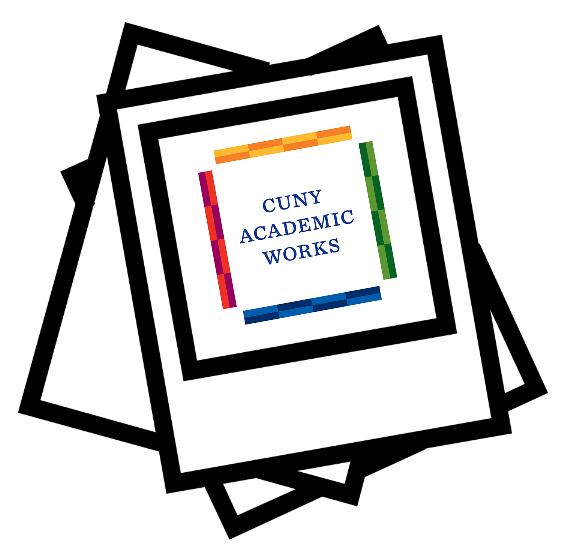Home » 2017 (Page 3)
Yearly Archives: 2017
CUNY Academic Works Monthly Report: April 2017

During the month of April, CUNY Academic Works grew by 218 new items and 48,090 new downloads!
The five most downloaded works in April include:
- New York City Drunk Driving After Uber
Series: Publications and Research at the CUNY Graduate Center - The Influence of Anti-Semitism on United States Immigration Policy with Respect to German Jews During 1933-1939
Series: Master’s Theses at City College of New York - Media Representation of Asian Americans and Asian Native New Yorkers’ Hybrid Persona
Series: Dissertations and Theses at the CUNY Graduate Center - The Growth of Incarceration in the United States: Exploring Causes and Consequences
Series: Publications and Research at John Jay College of Criminal Justice - Reframing School Dropout as a Public Health Issue
Series: Publications and Research at Hunter College
CUNY Academic Works in the News
When CUNY researchers share their work with a wider public, this includes journalists interested in fact-based reporting. Therefore, it should come as no surprise that April’s top two downloads have the additional distinction of being cited in the news!
A doctoral candidate in the Graduate Center’s Economics Program, Jessica Lynn Peck, found that NYC has seen a 25 to 35 percent decrease in alcohol-related crashes since 2011. Both the Miami Herald and The Economist cited her working paper, “New York City Drunk Driving After Uber,” bringing scores of new readers to it (including some from Uber and even the U.S. Department of Transportation!).
A 2011 master’s thesis from former City College student and current CUNY Graduate Center student Barbara L. Bailin examines the influence of anti-semitism on United States immigration policies and was recently cited by Ingrid Anderson (Boston University) in a piece for The Conversation. An independent (and open access!) source of news and perspectives from the academic and research community, the story was then picked up by other outlets such as Salon, Alternet, Business Insider, and Observer. These are wonderful examples of how publicly accessible research can be translated into publicly accessible language.
CUNY Academic Works Monthly Report: March 2017

During the month of March, CUNY Academic Works grew by 164 new items, received 48,355 new downloads, and reached a new milestone! Almost two years since the soft launch of CUNY Academic Works in March 2015, content was downloaded over 500,000 times. This number only continues to grow as CUNY-generated white papers, peer-reviewed journal articles, and student theses are downloaded from all over the world.
The five most downloaded works in March include:
- Media Representation of Asian Americans and Asian Native New Yorkers’ Hybrid Persona
Series: Theses and Dissertations at the CUNY Graduate Center - The Growth of Incarceration in the United States: Exploring Causes and Consequences
Series: Publications and Research at John Jay College - Reframing School Dropout as a Public Health Issue
Series: Publications and Research at Hunter College - An Analysis of the South China Sea Dispute: Focusing on the Assessment of the Impact of Possible Solutions on the Economies of the Region
Series: Master’s Theses at City College of New York - Psychosis in Films: An Analysis of Stigma and the Portrayal in Feature Films
Series: Master’s Theses at City College of New York
Best Practice when Setting up ILL Accounts in Aleph
The best practice when setting up ILL accounts in Aleph is to set up individual accounts (patron status “32.ILL”) for individual ILL borrowers. Having all ILL loans go out under one individual account is not a good practice for several reasons. For example, it is not technically possible in Aleph for a single account to have unlimited loans. There are several advantages to individual accounts:
- ILL borrowers (the libraries making the request, not their patrons) would receive all patron notices and billing for un-returned items
- Borrowing Libraries would have a “bill” or lost materials notices to hand their patrons
- The notices can be targeted to a specific individuals at the borrowing organizations, for better communication
- Fewer ILL loans to the same account means one is less likely to hit a ‘limit’
- Several CUNY libraries may lend to the SAME borrower, but only one account is maintained. The work is thus distributed.
You can get more information, including a sample list of such accounts already set up in Aleph, on the OLS Support Site.
CUNY Academic Works Reaches 500,000 Downloads
 Almost two short years since its launch, content in CUNY Academic Works has been downloaded over 500,000 times! These downloads come from every state and every country and represent the local and global impact of making CUNY’s research, scholarship, and creative works publicly accessible to all. As the repository continues to grow, we only expect to see the download rate rise. Stay tuned!
Almost two short years since its launch, content in CUNY Academic Works has been downloaded over 500,000 times! These downloads come from every state and every country and represent the local and global impact of making CUNY’s research, scholarship, and creative works publicly accessible to all. As the repository continues to grow, we only expect to see the download rate rise. Stay tuned!
Missing ebrary titles
The Office of Library Services has recently seen an uptick in reported problems with ebrary titles showing up in the CUNY Catalog and not showing up in OneSearch. We have been in communication with the vendors (ebrary and Ex Libris) and think we have identified the problem.
In a nutshell, for subscribing to ebrary Academic Complete, we were given access to two complimentary collections: College Complete and Public Library Complete. These titles appeared in the ebrary platform but were never activated in the Primo Central Index (PCI) or SFX for discovery in OneSearch. We activated the collections in both places last week (on 2/15/17) and that seemed to have resolved most of the reported access problems—but not all of them. There are still some titles not showing up in OneSearch.
In talking to the ebrary vendor, we found that there are fewer titles in the SFX targets than there are in the collections: College Complete is short 1200 titles and Public Library Complete is short 1900 titles. They think that there was some problem with a metadata file sent to SFX and they are trying to resolve this issue. They have assured us this is a priority (as this would affect all College Complete and Public Library Complete subscribers who use SFX as their link resolver, not just CUNY). Once this is resolved, all centrally-licensed ebrary titles will appear in the OneSearch platform.
In the meantime, we may also be missing MARC records for these complimentary collections. We’ve been receiving monthly additions to these collections but they have been in the batches with the Academic Complete records and, again, we believe the numbers of records do not match up with the numbers in the SFX targets. We will work with the vendor on this as well; however, we think this will take more time and, in the meantime, are making the discoverability of these titles in OneSearch a priority.
If you have any questions about this topic, please contact your ERAC and/or SFX Committee representative. (The latter will be discussing this issue at its next meeting on Thursday, March 9, 2017.)

